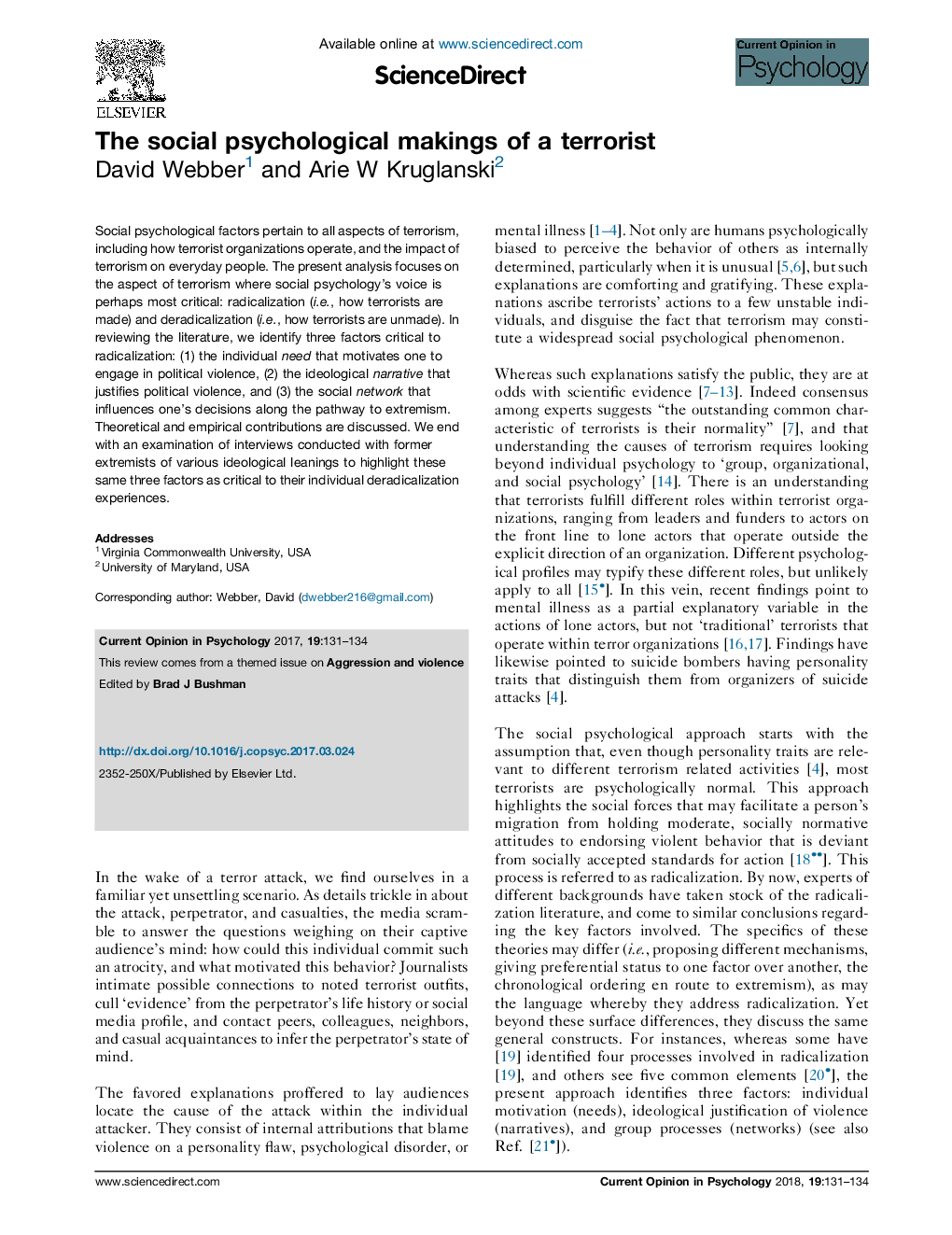| Article ID | Journal | Published Year | Pages | File Type |
|---|---|---|---|---|
| 5033459 | Current Opinion in Psychology | 2018 | 4 Pages |
â¢Identifies a three-factor model of radicalization and deradicalization.â¢Joining extremist organizations serves a motive to earn personal significance.â¢Ideology and groups identify extremism as a route for significance restoration.â¢Disillusionment with these factors motivates desistance from violent extremism.
Social psychological factors pertain to all aspects of terrorism, including how terrorist organizations operate, and the impact of terrorism on everyday people. The present analysis focuses on the aspect of terrorism where social psychology's voice is perhaps most critical: radicalization (i.e., how terrorists are made) and deradicalization (i.e., how terrorists are unmade). In reviewing the literature, we identify three factors critical to radicalization: (1) the individual need that motivates one to engage in political violence, (2) the ideological narrative that justifies political violence, and (3) the social network that influences one's decisions along the pathway to extremism. Theoretical and empirical contributions are discussed. We end with an examination of interviews conducted with former extremists of various ideological leanings to highlight these same three factors as critical to their individual deradicalization experiences.
